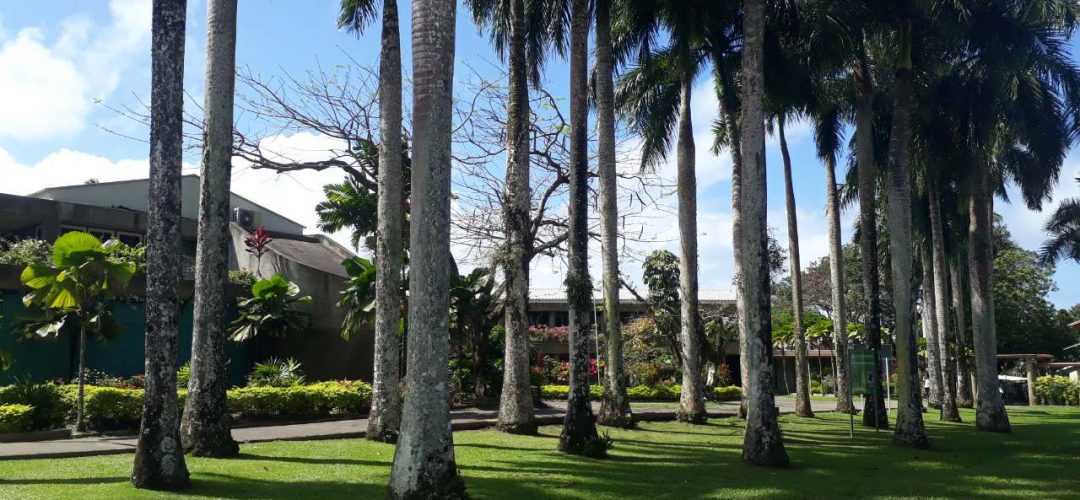Report reveals alleged instances of ‘significant cash leakages’ at USP

By GERALDINE PANAPASA
The Auckland-based accounting firm that carried out an independent investigation into recent allegations of abuse of office at The University of the South Pacific has found that four remuneration mechanisms were collectively exploited, resulting in significant cash leakages across the University over a number of years.
According to the Summary of the Independent Investigation Report by BDO Auckland, released yesterday by the Special Committee of the USP Council, these mechanisms included inducement allowances, responsibility and acting allowances, bonuses and consultancy arrangements.
The summary did not specify in dollar terms the cost to USP of the “significant cash leakages” and it did not implicate anyone by name, although these details are believed to be in the full report, which has not been made public.

Among other findings, BDO Auckland identified three key observations during its investigations into allegations raised in a paper by USP Vice-Chancellor and President Professor Pal Ahluwalia titled, ‘Issues, Concerns and Breaches of Past Management and Financial Decisions’. According to BDO, the paper by Prof Ahluwalia put forward 26 allegations of mismanagement by the former VC, Professor Rajesh Chandra, who held office from 2008-2018. To a lesser extent, BDO said the paper allegedly implicated some other members of USP’s senior management team, who were the alleged beneficiaries or decision-makers.
The investigation was carried out on an evidential basis, with allegations or assertions being traced through to documentary evidence. However, BDO said this was not always possible due to the level and quality of documentation retained by USP, which also meant it was not able to substantiate a number of the allegations.
“BDO is of the view that oversight, governance, and control of remuneration is a key weakness across the USP,” the summary report stated.
“This was the key theme throughout the investigation as many of the matters raised in the paper, or the likely motivations behind those matters, relate to remuneration.
“USP’s current policy framework, while extensive, is overly complex, fragmented, outdated, and generally isn’t fit-for-purpose.”
The summary report also found that a number of allowances had been paid to some local and expatriate staff over a number of contract renewals and in contradiction of the conditions and intent of the Inducement Allowance Policy.
BDO recommended a full review of the University’s approach to inducement allowance, adding USP should move away from paying inducements as a percentage of salary and instead set modest one-off sign-on bonus amounts, which were pegged to, and commensurate with, position grades.
The summary report revealed that allowances had been paid to some staff extensively with very little policy guidelines and this had inflated their total remuneration.
“These allowances are also out of alignment with other universities that the USP benchmarks itself against,” BDO said, recommending USP develop a single, comprehensive policy for all staff setting out its approach to responsibility and acting allowances.
“This policy should outline strict parametres for the use of such arrangements and should be approved by the Remuneration Committee of the Council.”
The report also found that bonuses, in some cases, multiple bonuses, had been paid extensively to staff, which was in breach of the USP policies.
“It appears that a culture of entitlement to bonuses has developed rather than being a mechanism to reward exceptional effort and performance,” BDO said.

The accounting firm also found inconsistencies in the application of consultancy arrangements policy and the allocation of income between USP and academic staff.
While BDO noted that majority of the decisions investigated were made within the boundaries of the VCP’s Ordinance, when critically analysed, the rationale for many of the decisions taken was unclear.
“While the allegations highlighted in the paper have arisen in an unfortunate manner, they have raised serious concerns that require attention and action.
“These provide USP with an opportunity to reflect and take corrective action that will ultimately improve the culture and quality of education and research at USP.”
In his August video-blog to the USP community, Prof Pal said USP was now in a position to grow from strength to strength and would continue to provide the best tertiary education to students.
*Geraldine Panapasa is the supervising editor-in-chief of Wansolwara. She is also a teaching assistant at USP’s Laucala campus.










